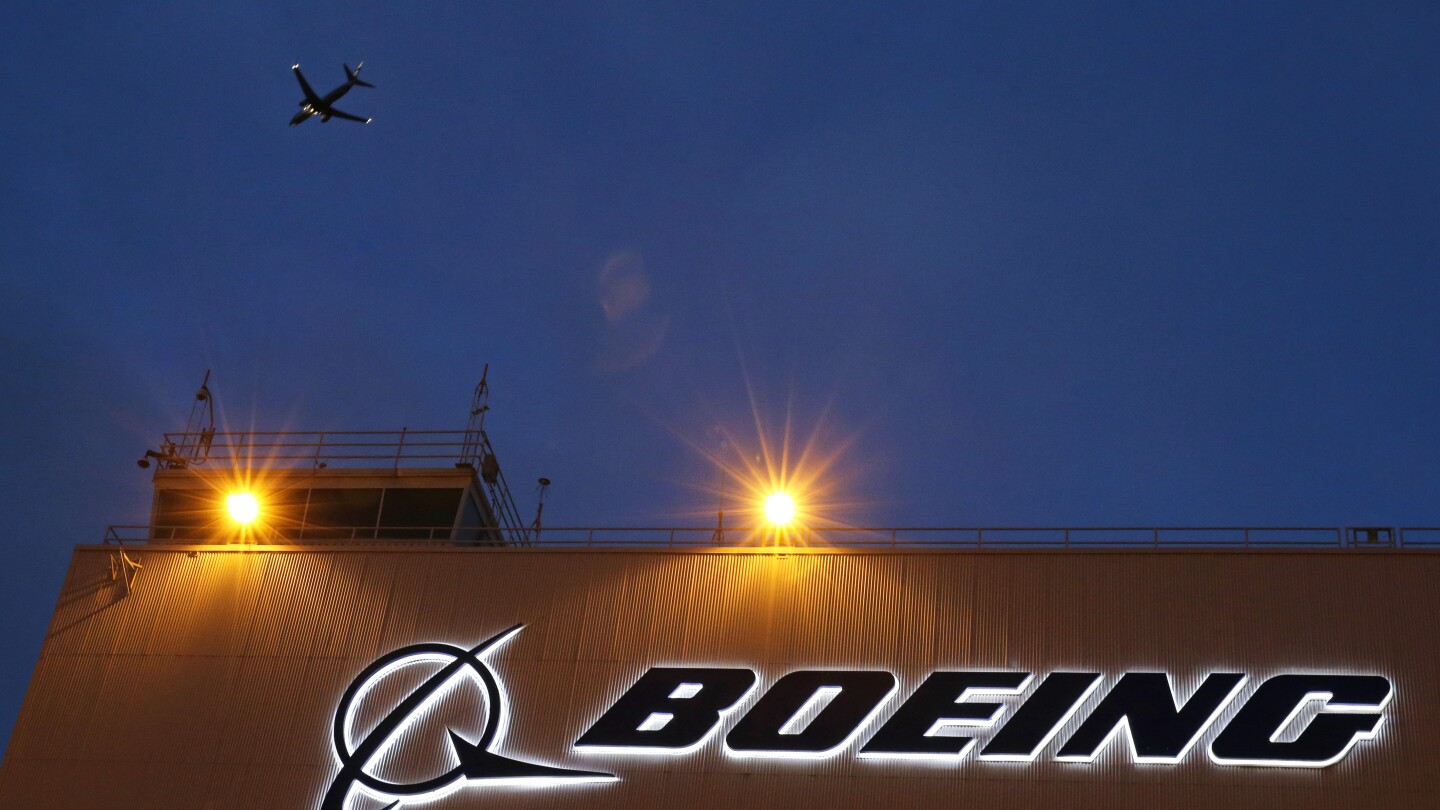The U.S. Justice Department is pushing Boeing to plead guilty to criminal fraud in connection with two deadly plane crashes involving its 737 Max jetliners, according to several people who heard federal prosecutors detail a proposed offer Sunday.
Boeing will have until the end of the coming week to accept or reject the offer, which includes the giant aerospace company agreeing to an independent monitor who would oversee its compliance with anti-fraud laws, they said.
The case stems from the department’s determination that Boeing violated an agreement that was intended to resolve a 2021 charge of conspiracy to defraud the U.S. government. Prosecutors alleged at the time that Boeing misled regulators who approved the 737 Max and set pilot-training requirements to fly the plane. The company blamed two relatively low-level employees for the fraud.
The Justice Department told relatives of some of the 346 people who died in the 2018 and 2019 crashes about the plea offer during a video meeting. The family members, who want Boeing to face a criminal trial and to pay a $24.8 billion fine, reacted angrily. One said prosecutors were gaslighting the families; another shouted at them for several minutes when given a chance to speak.



“Imprisoning” a company is kind of a nonsensical concept because it is a concept that is made up and exists only in the minds of people. But one “creative” punishment is potentially to punish the company by confiscating its equity.
So instead of N years imprisonment, the state confiscates N × 5 per cent of the company’s equity. That means that all outstanding shares represent 100 minus N×5 per cent of the company instead of 100 per cent.
Example: Company A has 1 million outstanding shares. Each share of common stock therefore represents 0.01% of the company. Suppose the company is convicted of a crime that would be punishable by 3 years imprisonment. So 15% of its equity is confiscated. That now means 1 million shares represent 85% of the company, so each share of common stock now only represents 0.0085% of the company. The state gets one special share that represents the 15% equity that was confiscated. The state gets 15% of all profit dividends going forward.
This would heavily encourage companies to avoid criminal activity and it is multitudes more effective as a deterrent than mere fines, because it directly hurts a company’s share price, i.e. the one thing that its investors actually care about.
The problem here is that it would reward the government for either a) punishing criminals but also b) framing innocents with the goal of taking their money. We’re seeing how well that works with the private prison industrial complex. In essence, it just creates an industry of creating criminals where there were none.
Punishing criminals severely is great. Making it a business will end up with the worst kind of people optimising the revenue from it.
Right. We’ll see the same cronies from Boeing looking for a Gov position so they can get away with legal theft next
Ooooh no. A government position would imply at least a shred of accountability. They’d lobby for privatisation. Failing that, they’d bribe the officials in charge to run the whole system into the ground so that they can argue a private entrepreneur could run it more efficiently, and then they’d do it with as little oversight as they can buy from their legislators.
Removed by mod